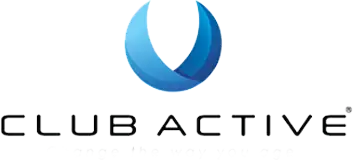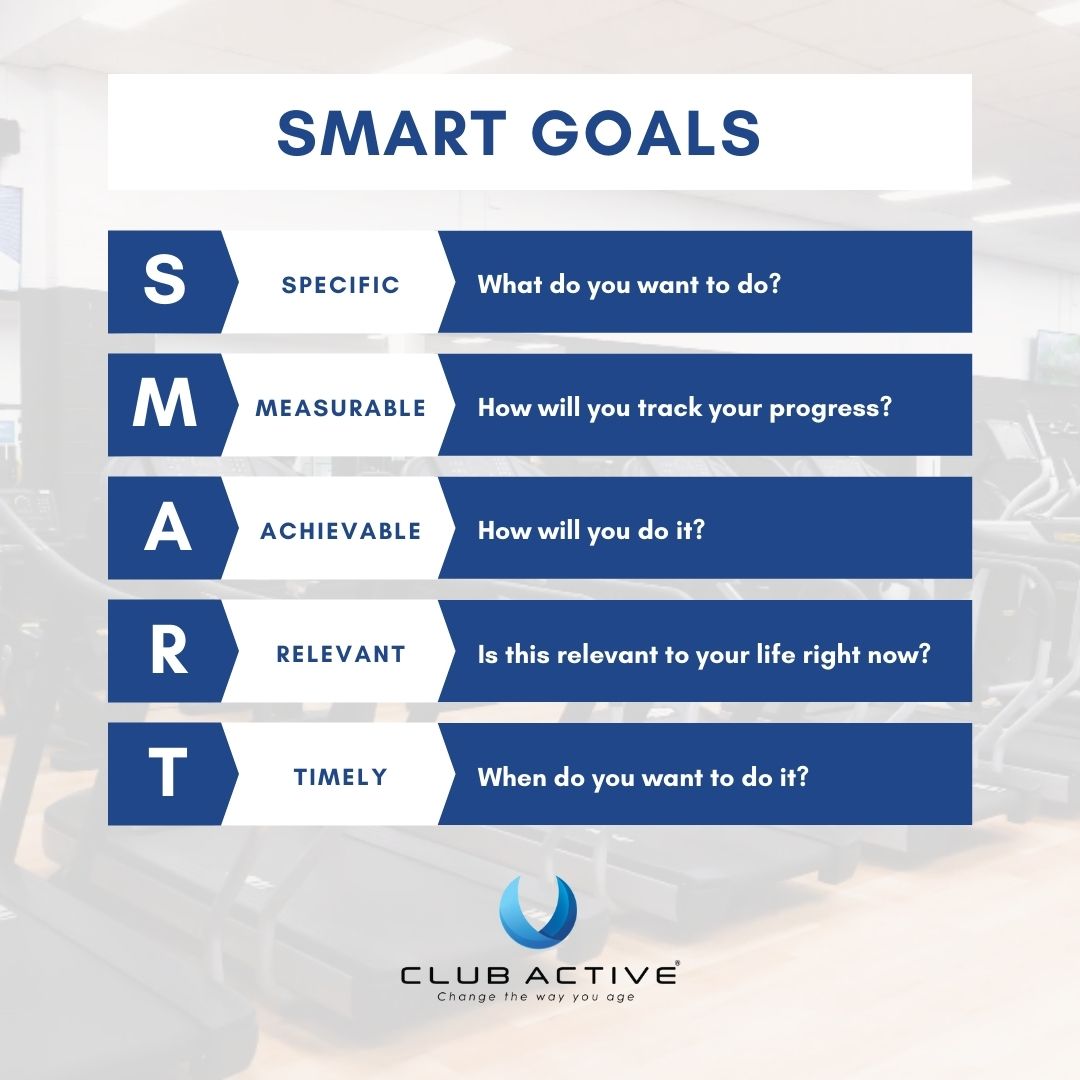The beginning of a new year brings with it many new year’s resolutions! In fact, 83% of Australians set goals for the new year, and 51% of these goals are related to improving health. The sad truth is, research shows only 25% of people usually stay committed to their new years’ resolutions after 30 days.
We sat down with Club Active Parkwood Accredited Exercise Physiologist, Matt Hansford, to discuss how to set realistic and attainable goals, that people will be motivated to achieve. Get out your notepad and pen team, we’ve got some great tips below to help you set your goals!
First, brainstorm your general health goals for 2022. Common goals for Club Active members:
- Improve quality of life through reductions of pain and gaining better movement quality
- Reductions in weight
- Gaining muscle mass/strength
- Improve mental health
- Meet new, like-minded people
To make sure your goals are clear and reachable, each one should follow the SMART principle:
- Specific (simple, sensible, significant).
- Measurable (meaningful, motivating).
- Achievable (agreed, attainable).
- Relevant (reasonable, realistic and relevant to you).
- Time-bound (time-based, time/cost limited, time-sensitive).
SMART is a well-established tool that you can use to plan and achieve your goals. It can also improve your ability to reach goals by encouraging you to define your intentions and set a completion date. Let’s learn more about each principle:
SPECIFIC
Ensure that your goal is as defined as possible. Rather than vague statements, set numbers and values to your goals. For example:
- If your goal is to reduce back pain, place values on this pain: “My pain in my back is currently at an 8/10, I would like it to be 5/10.”
- If your goal is to lose weight a more specific goal is: “I would like to lose exactly 2% body fat and gain 3% muscle mass.”
MEASURABLE
It’s important to have measurable goals so that you can track your progress and stay motivated. If you can’t measure the success of your goal, how do you know when you achieve it?
You may ask, how do I track “I want to be fitter?” Club Active exercise physiologists will help you quantify this goal. For instance, we may set a treadmill protocol in your revision that measures your Aerobic Fitness through factors such as; distance covered, blood pressure, heart rate variability, and perceived exertion. After 8 weeks we can see the improvements you make by re-testing.
ACHIEVABLE
This is an easy one but is often missed when people make their goals. You can say “I want to be a millionaire by the end of this year” however short of robbing a bank or winning the lottery, is that totally achievable? In other words, it should stretch your abilities but still remain possible.
It is great to self-reflect when thinking of a goal of what you have managed to achieve throughout your life when knuckling down. Perhaps your ultimate goal is to exercise 5 days a week, but you’ve only ever managed to do 2 days at a time. Perhaps then your SMART goal could be short-term, achieving 2 days on a regular basis over several weeks. Then once achieved moving to 3 days a week.
RELEVANT
Your goal needs to make sense to YOU.
- Do your goals align with the person you want to be or the life you want to live?
- Why is the goal important to you? Find your why and the goal becomes relevant.
If you create a goal to have biceps like Arnold Schwarzenegger, but can’t find a reason why you want them, you probably will struggle to achieve the desired result. However, if you perhaps create the goal: “I want to improve my cardiorespiratory fitness, so that I can be there for my grandchildren – why? Because they are important to me as a person and I hold value in family.”
TIME-BOUND
This one is pretty straightforward… If you set no time limit to a goal, then you offer yourself up to complacency – that’s not to say you can’t fail! In fact, failing is good; it allows you to reconfigure your SMART goal if it was unrealistic.
A time-bound goal will usually answer these questions:
- What can I do six months from now?
- What can I do six weeks from now?
- What can I do today?
The difference between “I want to lose 2kg” and “I want to lose 2kg before my Daughters Wedding” is the sense of urgency and even competition within yourself. It can be a great driving factor.
Putting the SMART principles together
Let us utilise the SMART principles all together to create a few examples:
- To reduce lower back pain from an 8/10 to a 5/10 by completing 3 x exercise sessions per week for the next 6 months.
- To lose 2% body fat by completing 3 x cardio-based group fitness classes and 1 x strength session per week for the next 6-weeks.
- To squat 40kg for 10 reps x 3 sets without difficulty by 30th July 2020 (an improved strength focus).
How can a Club Active Exercise Physiologist help?
Club Active university-qualified exercise physiologists can sit down with you and ensure when health goals are being set, the SMART principle is being followed. Our team of professionals can also measure your current physical health and provide advice on how to improve and progress realistically. In addition, a tailored exercise program can be prescribed based on achieving your unique health goals.
Speak with your GP today about eligibility for Medicare rebates on a Chronic Disease Management Plan for allied health services. We also work with NDIS, DVA, Work Cover Qld & NSW and private health insurance.

